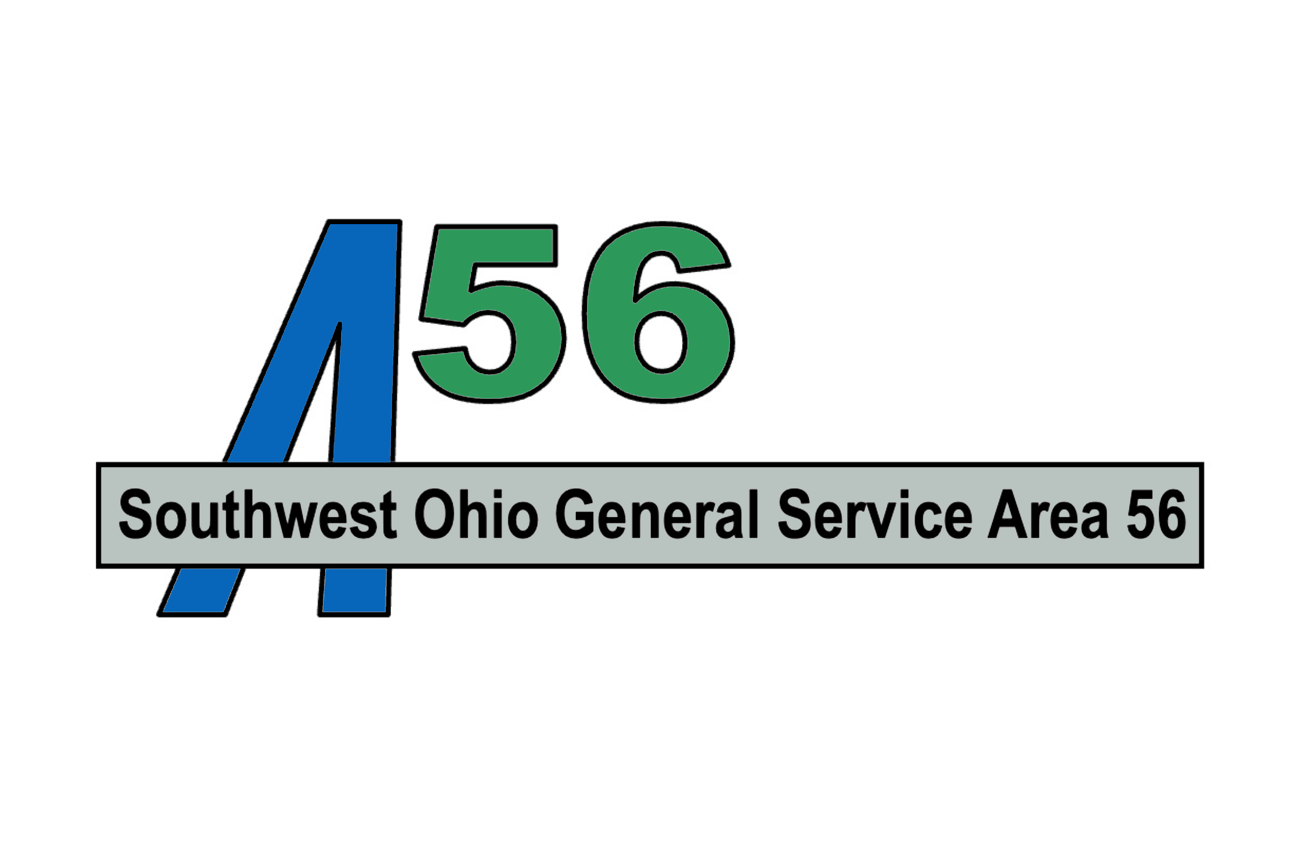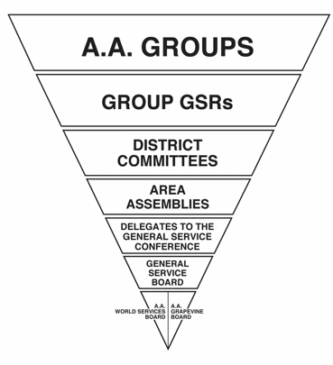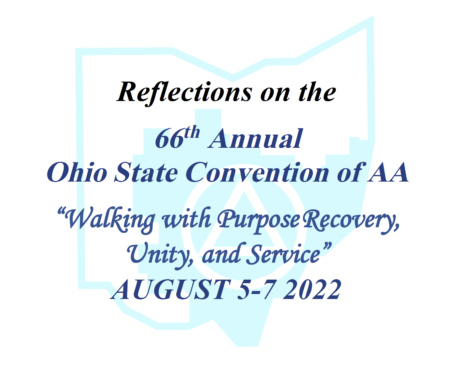Looking back from the vantage point of over 75 years, it can be difficult to imagine how uncertain A.A.’s existence was in its early days. Difficult problems related to money, property and prestige plagued the early members and the question of how this group of alcoholics could best get along and carry their message to others was paramount in their minds. With the many challenges faced by the Fellowship in its infancy, cofounder Bill W. often referred to A.A. as “a flickering candle,” one that might at any minute “be snuffed out.” Yet, the Fellowship proved durable and, with the help of its many friends and supporters, began to take root and grow.
It began with the groups — first only a few, then hundreds, then thousands. Soon an Alcoholic Foundation, later renamed the General Service Board, was formed to be responsible for A.A.’s affairs. And with Dr. Bob’s death and Bill facing up to his own mortality, a General Service Conference ultimately took shape and assumed the leadership that had once fallen to A.A.’s cofounders and early members. Meanwhile, a tiny publishing operation and service office had grown in size and importance to the
Fellowship, and a monthly journal, the A.A. Grapevine, was being published.
Questions abounded. Which of these entities was supposed to do what? What was their relationship? Who was in charge? What were their responsibilities — and what were their rights?
As Bill acknowledged in 1960 to the General Service Conference, “Just as it was vital to codify in Twelve Steps the spiritual side of our program, to codify in Twelve Traditional principles the forces and ideas that would make for unity and discourage disunity, so may it now be necessary to codify those principles and relationships upon which our world service function rests, from the group right up through the trustees of the General Service Board…a stated set of principles and relationships by which we may understand each other, the tasks to be done and the principles for doing them.”
So, Bill set about putting the Twelve Concepts for World Service onto paper, noting in the introduction to the Concepts, first published in 1962 and later in combination with The A.A. Service Manual, that the Concepts “aim to record the ‘why’ of our service structure in such a fashion that the highly valuable experience of the past, and the lessons we have drawn from that experience, can never be forgotten or lost.”
Further, he wrote, “It is natural and even imperative that our service concepts be based on the system of ‘checks and balances.’ We have had to face the fact that we usually try to enlarge our own authority and prestige when we are in the saddle. But when we are not, we strenuously resist a heavy-handed management wherein someone else holds the reins. I’m the more sure of this because I possess these traits myself.
“Consequently, ideas like the following pervade the Concepts: ‘No group or individual should be set in unqualified authority over another,’ ‘Large, active and dissimilar operations should be separately incorporated and managed, each with its own staff, equipment and working capital,’ ‘We ought to avoid undue concentration of money or personal influence in any service group or entity,’ ‘At each level of service, authority should be equal to responsibility,’ ‘Double-headed executive direction should be avoided.’ These and other similar provisions define working relations that can be friendly and yet efficient.”
Adopted by the General Service Conference in 1962, the Concepts have been one of A.A.’s “behind the scenes” forces in guiding the Fellowship to its present level of growth in reaching alcoholics around the world. Given the scope of A.A. and its vital services, it’s important to recognize how the world service structure functions and how it developed, and that the principles contained in the Twelve Concepts, such as the “Right of Decision,” the “Right of
Box 4-5-9 is published quarterly by the General Service
Office of Alcoholics Anonymous, 475 Riverside Drive,
New York, NY 10115, © Alcoholics Anonymous World Services, Inc., 2011
Mail address: P.O. Box 459, Grand Central Station
New York, NY 10163
G.S.O.’s A.A. Web Site: www.aa.org
Subscriptions: Individual, $3.50 per year; group, $6.00 for each unit of 10 per year. Check—made payable to A.A.W.S., Inc.—should accompany order. To have issues delivered directly to your inbox, register your e-mail on the A.A.
Digital Subscription Service on G.S.O.’s Web site.
Participation” and the “Right of Appeal,” were hammered out on the anvil of A.A. experience, just like the Steps and Traditions.
As noted by Margaret C., a former general service trustee, “You and I should know: who has the final authority for world service; how our trustees relate to our business corporations; how we handle the situations fairly if someone disagrees with the majority; how our Conference relates to the board of trustees; why it is so necessary for us to have good rotating leadership; why Conference action should never be personally punitive nor incite public controversy….
“The Concepts help to insure A.A. unity and do a very beautiful thing for us: They free you and me so we may devote our attention to carrying out our Fellowship’s primary purpose. So, in a sense, the Concepts, too, help to bring recovery to the alcoholic out there, anywhere in the world, who might need our help.”
Writing of the Concepts, a former delegate from the South Florida area, Sam S., noted the permanent importance of the Concepts to A.A.’s general welfare and how inherent the principles behind the Concepts are to A.A. members, whether they are specifically aware of the Concepts or not. “They tell us that we should never become money- or power-conscious, that we are all equals, that decisions should be made, if possible, only when we are substantially agreed, that our actions should never be judgmental, and that we should act, at all times, as trusted servants only. These…are guides for the relationship of the Conference to all of A.A.; but they are guides, too, by which any group of A.A.s, anywhere, can work effectively together to keep our Fellowship safe for those yet to come.
“Not only are the lines of communication clearly drawn in our Twelve Concepts, but we are given methods for communicating that are full of A.A. concern, trust, love, mutual respect, and recognition of the dignity of each individual. Indeed, we find that our Twelve Concepts are the spiritual foundation for all of A.A.’s world services.”
For more information about the Twelve Concepts for World Service, see “The Twelve Concepts Illustrated” (P-8); Twelve Concepts Window Shade (M-20); “The Twelve Concepts for World Service” (BM-31, BM-32).
Reminder:
Résumés for Trustees Election due Jan. 1, 2012
Two new Class B (alcoholic) trustees—from the West Central and Western Canada regions—will be elected at the General Service Conference in April 2012. Résumés must be received at G.S.O. no later than January 1, 2012, and must be submitted by delegates only.
The new West Central regional trustee will succeed Ken B., of Omaha, Nebraska; the new Western Canada regional will follow Vic P., of Calgary, Alberta.
Please submit your candidate’s résumé to the Secretary, trustees’ Nominating Committee, General Service Office.
Central Office/ Intergroup Seminar
Tucson will be the site of the 26th Annual Central Office/Intergroup Seminar, September 30-October 2, 2011. Hosted by the Tucson Area Intergroup, the event will be held at The Hotel Arizona. This year’s theme is “We Are
Responsible For A.A.’s Future — Let It Begin With Us.”
This annual Seminar provides a forum, through workshops, discussions, and the exchange of ideas and shared experience, for those who are on A.A.’s front line. Attendees are Intergroup/Central Office managers, Intergroup representatives, and representatives from G.S.O. and Grapevine staff members, and from the
A.A.W.S. and Grapevine Boards.
Please make your reservations, at special seminar rates, by September 27, by calling 1-800-845-4596, or online at www.thehotelarizona.com
Registration fee is $25.00. For any questions, or for a Seminar registration/questionnaire, contact Reggie T., coordinator, (520) 882-7422; aatucson.org.
A.A. eBooks
For information about A.A.W.S. eBooks and eReader App, visit www.aa.org in November 2011.
2 Box 4-5-9, Fall 2011






